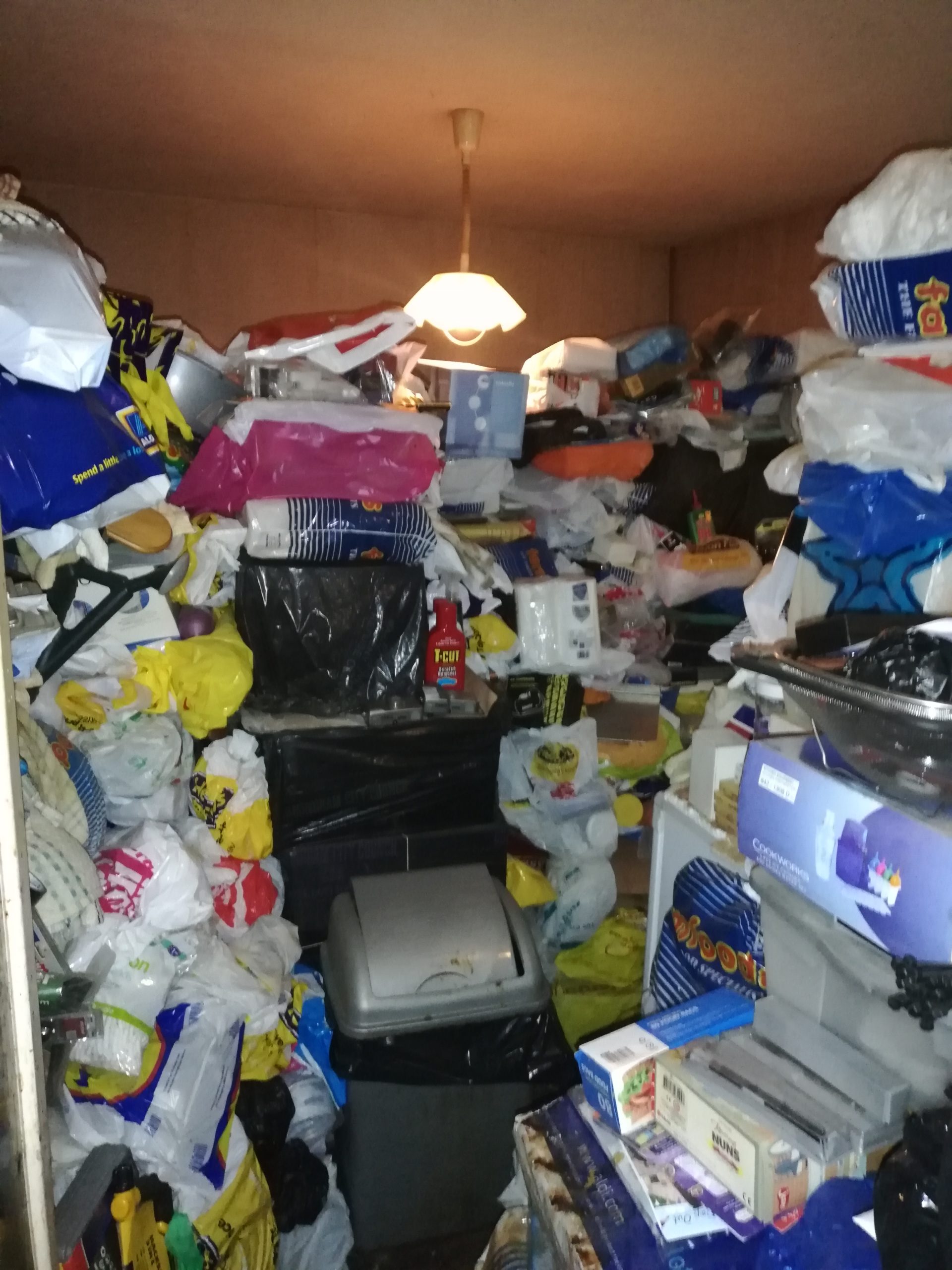Proud Official Sponsor
Hoarding Disorder Symptoms

Common Hoarding Disorder Symptoms:
Let’s go back to basics and looking into common Hoarding Disorder Symptoms. It is really important to understand the base line characteristics of Hoarding Disorder before you can start to understand it on a deeper level. Not every symptom is as obvious, and those not visible to the eye can be overlooked, by ensuring you know the crucial pointers that signify an individual may have a significant problem with Hoarding Disorder, can result in them accessing the correct level of support.
Excessive Accumulation:
There is a persistent and excessive accumulation of possessions that clutter living areas to the extent that their intended use is compromised and the home may be unsanitary or unsafe. This leads to the individuals day to day life and activities being severely impaired.
Difficulty Discarding:
Avoidance Of Discarding:
Linking with Difficultly Discarding, the intense emotions often leads to those with hoarding disorder often avoid making decisions about what to discard, and this avoidance can extend to tasks such as sorting, organising, and disposing of possessions. This highlights why it is important to ensure clearances are done at the pace the client can handle and is in full control of.
Emotional Attachment:
This could be pinpointed as the most important to understand and recognise. Hoarding Disorder is mostly the action in response to a life event or traumatic experience which causes strong emotional attachment to possessions, and they may believe that these items hold sentimental value or may be needed in the future
Hoarding Disorder comes in varying levels of severity, understanding and being able to spot these Hoarding Disorder symptoms, is crucial in ensuring individuals receive the correct level of care.


